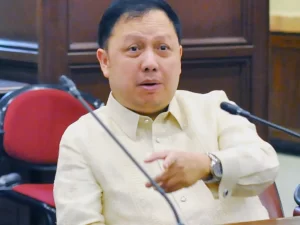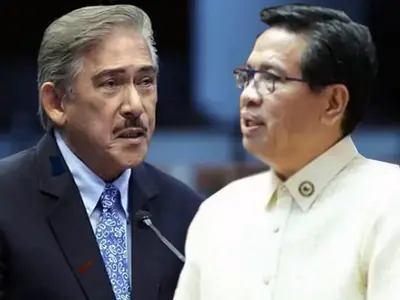
THE House of Representatives on Monday approved on third and final reading the P6.793 Trillion national budget with 287 votes in favor.
One of the 12 who voted against was Batangas 1st District Representative Leandro Legarda Leviste, who has been pushing to lower prices to end kickbacks in the Department of Public Works and Highways (DPWH).
Citing former DPWH Undersecretary Roberto Bernardo’s testimony that “almost 100%” of bids in DPWH are rigged, Leviste explained his “No” vote: “After all the flood control hearings, we should not approve the same prices for projects of DPWH. We should lower prices by 25% to remove P150 Billion in possible kickbacks.”
According to Leviste: “DPWH sets the prices, does the bids, and even if a Congressman does not get a kickback, someone else can get it. Kickbacks are factored into DPWH’s high prices. We should lower prices so there’s no more budget for kickbacks of DPWH. Not lowering prices is tantamount to funding more kickbacks for 2026.”
To prove that kickbacks are factored into the budget for DPWH projects, Leviste has written to the House Committee on Appropriations to ask to lower by 30% the price of DPWH road projects in the First District of Batangas and re-align P508 Million in savings to fund the construction of over 200 classrooms.
“I don’t accept kickbacks, so I asked Congress to lower the price of DPWH even just in my district, so we can show that DPWH can build projects at lower prices as long as there’s no kickbacks. If we can end kickbacks in some districts, we can end kickbacks in the whole DPWH,” Leviste said.
Another reason that Leviste gave for his “No” vote was the inequitable allocation of budgets, citing the example of how Region 4A comprises 15% of the country’s population and Gross Domestic Product, but only gets 10% of the DPWH budget. “If the 2026 budget is amended to lower the prices of DPWH, hopefully the savings can be allocated to make the budget more equitable.”
Congress will now transmit the 2026 General Appropriations Bill to the Senate, which is conducting its own deliberations. The 2026 General Appropriations Act is expected to be finalized in time for signing before the end of the year.



